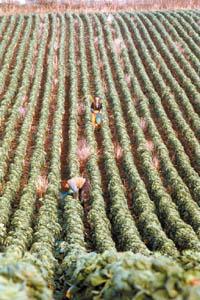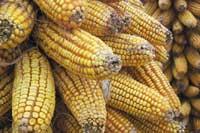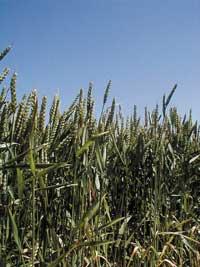They conclude that transgenic and conventional crops follow the same behavior
2001/02/07 Carton Virto, Eider - Elhuyar Zientzia

Society is immersed in a debate about whether GM plants do or not, but without knowing the behavior, effects and consequences of GM crops. At the end of the 1980s, the main concerns related to GM crops were three: whether they became weeds or invaders; whether genes introduced to GM crops would be transferred through pollen to wild varieties and whether altered wild varieties became invasive; and whether GM crops could pose a risk to humans and livestock.
Natural behavior
Researchers at Imperial College London have investigated the behavior of GM crops in nature and laid the groundwork for clarifying some concerns. The study has lasted 10 years and four GM crops have been analyzed: rape, corn, potato and sugar beet. These four have been investigated and not others because they were the four GM crops available at the beginning of the research.
The transgenic variety and the common variety of each of them were cultivated in 12 natural habitats and annual monitoring of the evolution of the field. The aim was to compare how transgenic varieties and conventional varieties behaved in nature to see if GMOs lasted longer and became invaders.
They have concluded that in 10 years everyone's behavior is equivalent. GMOs do not expand further outside the field than conventional ones, there are no genetic changes or they are maintained longer than conventional varieties. At 10 years, after their maintenance, all have disappeared from the planted regions.
Researchers at London College wanted to relate the particular findings of the research in a short space of time and have shown that this research only serves a type of transgenic crop. That is, for crops that have not been genetically modified to improve their adaptation to the natural environment. Other genetic changes do not indicate that crops will become invaders, but transgenic crops prepared to sow in the field last little in nature. But the ecological impact that genetically modified plants can have to combat dryness and those prepared to be resistant to pests cannot be concluded any of this study. These investigations should be independent.
Published in the newspaper

Gai honi buruzko eduki gehiago
Elhuyarrek garatutako teknologia






